#best song lyrics ever
Explore tagged Tumblr posts
Text
I love. LOVE. Get In the Water
It's one of the objectively best songs in the musical; I will die on this hill.
Poseidon was always, despite being pretty much the main antagonist of EPIC, a really underdeveloped character in my opinion. He just needed a little more nuance, and the fact that one (+ kind of one more) song managed to add so much to his characterization pretty much exclusively through subtext and implications is incredibly impressive writing. Because it did!
At the start, he's yet again playing games with Odysseus, the way he did in Ruthlessness. In both songs, he could kill him easily at any point, yet he chooses not to for the sake of playing games. In Ruthlessness, this becomes his own hubris as it leads to Odysseus escaping.
If you listen closely, at the start of GITW he already sounds slightly different. He's still trying to keep up this "God of Ruthlessness" front that he's so proud of, but he's no longer more or less carefree the way he was in Ruthlessness. He's been obsessing over this feud for ten years, and even if he would never admit it, it's actually clear just from his voice that he really is tired of it too. Not in the sense of it emotionally draining him the way it probably does Odysseus, but in the sense that it's a bother, a loose end in his life, a book that he finally wants to slam shut.
But he still has a reputation to uphold, and he still cannot close this book until Odysseus is dead, so he keeps up the game. Instead of just killing him, he's taunting him to kill himself. He might associate the idea of just striking him down with a sort of loss, like then he'd have to get his hands dirty. Then he's rambling about killing his people, his family. He's provoking Odysseus on purpose, likely trying to get him to snap back, to hate and fear him the way that Poseidon would think any mortal who has consumed this much of his time should. In his eyes, Odysseus deserves nothing less than to curse him with his last breath as his "darkest moment," the god who became the bane of his life.
And Odysseus replies, of all things, with ... sympathy.
Honestly, I don't blame Poseidon for being speechless for three full seconds. He literally just threatened to gauge Telemachus' eyes out the way Odysseus did with Polyphemus, and this absolute madlad of a man replies with an acknowledgment that he (might have) caused Poseidon pain too.
Now, I don't really think Poseidon was particularly hurt over Polyphemus' loss, or hurting in any way in that moment (if he were, I highly doubt he'd still be playing games, and he would've mentioned his son as opposed to speaking about his reputation.) But just the fact that Odysseus acknowledges that he might be hurting too is probably something Poseidon hasn't heard in ... who knows how long? His family is the Olympians. I don't think I have to say more.
It's actually more of a genuine apology than Odysseus' explanation in Ruthlessness ... (even though that was also a perfectly fine apology by Greek standards, as far as I'm aware.) Now he doesn't say "sorry" because he's still not sorry for hurting Polyphemus, since he still needed to do that in order to escape. But he expresses regret over the pain he caused in a more genuine way than ever.
I am convinced that Poseidon is utterly unfamiliar with sympathy or mercy. He's lived by his "Ruthlessness is mercy" motto for centuries, and he doesn't know anything else. No one would try to teach him something different. The other gods all live by this logic, even if he's the most vocal about it considering he seems to have made it his whole personality. Mortals wouldn't dare to question Poseidon in the first place. And barely anyone would be willing to treat someone with kindness who is in turn treating everyone around them with ruthlessness.
It's very likely that Poseidon hasn't encountered anyone like this until Odysseus. Ruthlessness is simply how he treats people and also how he expects to be treated back. The fact that Odysseus doesn't, the fact that instead of hating, fearing, or cursing him, he acknowledges that they have both hurt each other and that it doesn't lead anywhere to still pursue vengeance, must have triggered Poseidon in an unprecedented way.
To him, this was probably the most outrageous thing Odysseus could have said in that moment. And it throws him off so much that he is genuinely speechless, and then simply replies, "I can't." ... his most genuine-sounding line in the whole musical.
I cannot stress enough how much it threw me off to hear this line; in the best way imaginable, it doesn't sound like Poseidon. It sounds almost vulnerable. Almost human. Because he is genuinely at a loss so much that he forgets to put up his "wrathful god" facade for just one second. Standing ovation to Steven Rodriguez for his whole performance, but especially this part.
And then Odysseus goes all out to say something even more outrageous: "Maybe you could learn to forgive?"
... Which is when Poseidon snaps.
Kind of understandable, honestly. There's this mortal whom he has likely fantasized about seeing pleading, hate-filled, and terrified, cowering before him for ten years now ... telling him that he ought to learn something. Even hijacking his own motif and his instrument in order to turn it on its head, "defile" it if you will.
This f*cking mortal pr*ck took his own "Ruthlessness is mercy upon ourselves" catchphrase and turned it into forgiveness ... Of course, Poseidon is no longer hesitating; of course, he is no longer concerned with getting his hands dirty or not. He yells "DIE!" and unleashes his ultimate move (which is really overkill for simply killing a mortal if you think about it) ... But he does it anyway because this time he genuinely means it.
... That, and I am also convinced he jumps to that in order to simply shut Odysseus up, fearing what he might do or think if he lets him go on. Because you cannot tell me that Odysseus didn't actually reach him for just one moment. He was far too thrown off guard, far too vulnerable in that one second. That moment of kindness did something to him, and he hated it. He also probably didn't trust himself to be able to keep listening to Odysseus speak like that. So, he abandons his (still very technically feasible!) blackmail/intimidation and just straight-up kills him.
This simple exchange (my favorite moment in the whole musical, actually) tells us so much about both of these characters that it makes me want to skitter and squeal in excitement.
Here is Odysseus—the very same one whom Poseidon specifically tried to teach ruthlessness—becoming the first person in a long time to offer him sympathy despite how Poseidon himself showed him nothing but ruthlessness. And then one song later, here is Odysseus showing him the consequences of not accepting said sympathy.
Six Hundred Strike and what Odysseus does to Poseidon would've not hit the same, in my opinion, if he hadn't made this offer, if he hadn't given Poseidon this way out, even if no one watching genuinely expected it to work (probably not even Odysseus himself.)
Six Hundred Strike is not Odysseus exacting vengeance If GITW proved anything about Odysseus, it's that he does not want vengeance. He wants all of the hatred and pain to be over, to the point where he is willing to let go of, and I am inclined to say forgive Poseidon for what he's done to him. Six Hundred Strike is simply Odysseus teaching him this lesson that Poseidon couldn't have learned in any other way, because he has proven in GITW that he genuinely does not speak any language besides that of ruthlessness (more on that in this essay!)
It's just the perfect representation of how Odysseus has now finally learned the balance between mercy and ruthlessness, which seems to be the core theme of the musical: Both have their time and place; one simply has to be willing to act in both ways and know when to use either. No one extreme is the solution. I am genuinely exhilarated that Odysseus finally seemed to have figured out that it's been both all along.
#this is easily one of the objectively best songs in the musical#god games is similarly great in subtle characterization#and thunder bringer is a lyrical masterpiece#those are definitely the top 3 if we go by objective quality alone#no i will not shut up about this moment ever#i love it so dearly#the CHARACTERIZATION man#i went from being annoyed by poseidon to dearly loving him as a character#is he my second favorite god now? maybe#inhales IT DOESNT MATTER HOW GOOD THE CHANCES OF IT WORKING WERE#ODYSSEUS GETS ALL THE CREDIT FOR TRYING TO LEAD FROM THE HEART#i will die on this hill#epic musical#epic the musical#epic the vengeance saga#get in the water#epic odysseus#epic poseidon#jorge rivera herrans#you mastermind#I'm gonna make a tag for these my epic essays#If you want more search on my profile for >#epicssay
108 notes
·
View notes
Text

Well, there's no way im kissing that guy!!!!
#my chemical romance#mcr#mcrmy#mcr gerard#gerard way#frank iero#ray toro#mikey way#three cheers for sweet revenge#tcfsr#best album ever!!#best album#lyrics#song#i love this song#give em hell kid#my chem#my chem romance#my chemical gerard#my chemical fucking romance#my chem gerard#emo#emo band#rock#rock band#2000s emo#2000s aesthetic#2000s song#lesbian vibe
132 notes
·
View notes
Text
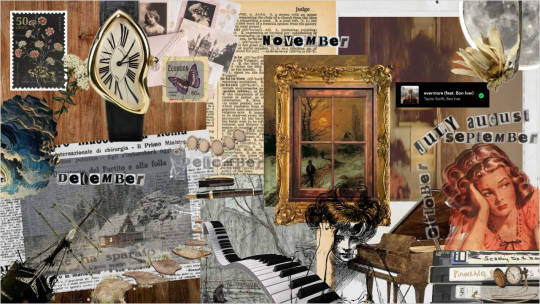
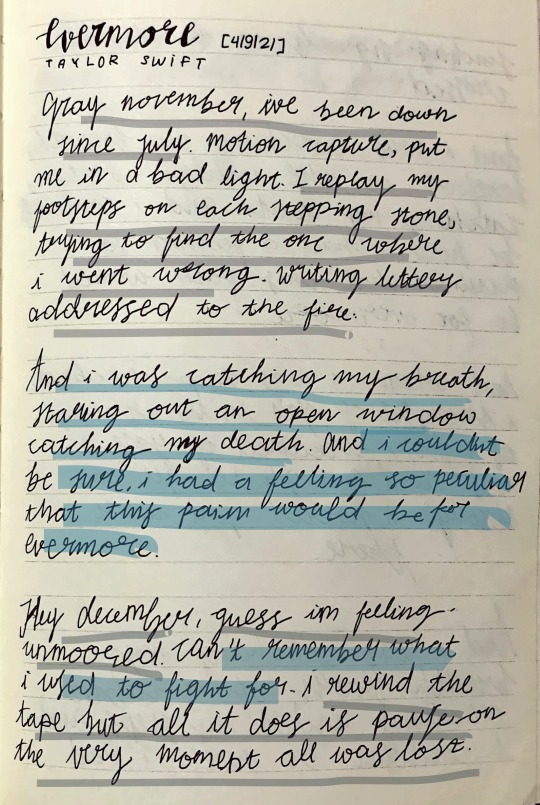
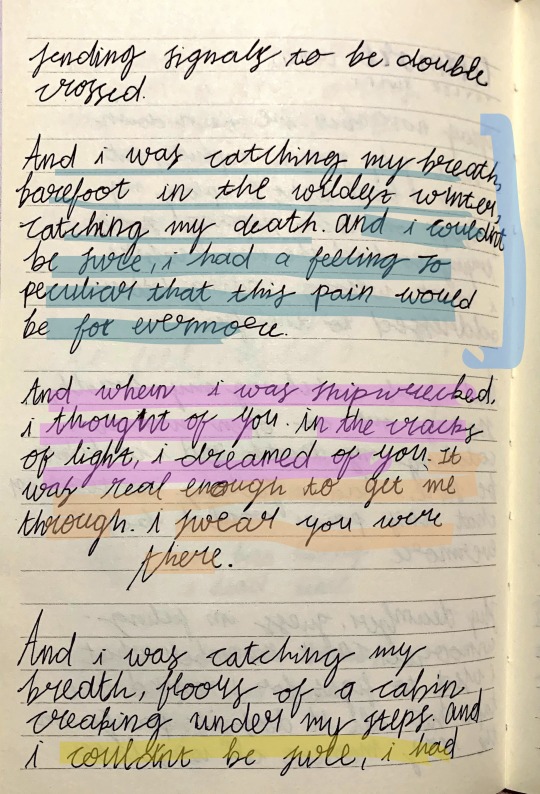
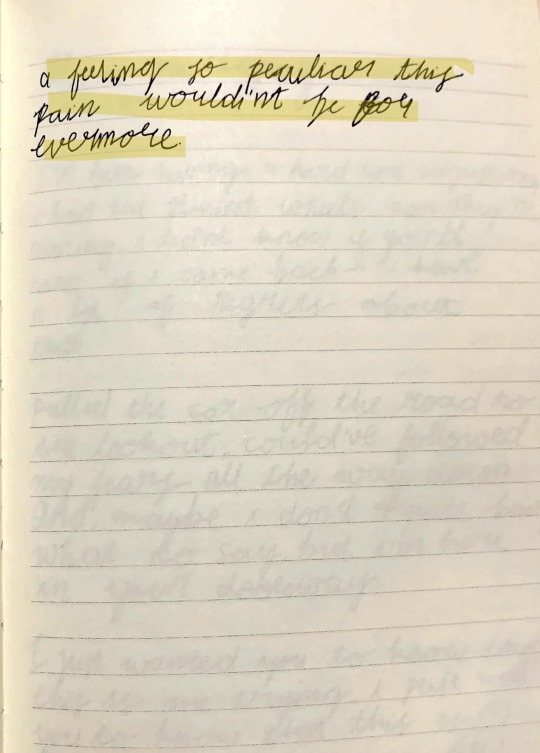
EVERMORE by taylor swift (feat. bon iver) — “and i was catching my breath, floors of a cabin creaking under my step. and i couldn’t be sure, i had a feeling so peculiar, this pain wouldn’t be forevermore.”
my #swiftiegiftexchange2024 for @lovesickallovermybed!!!! 🫶🏽🫶🏽
#HIII HII HII how are you <3333 SO sorry for being slightly to the party but HII#i saw that you are currently recovering from surgery and i‘m wishing you all the best and =a faster recovery 💗💗 i hope you��re okay and#are feeling and getting much better every day 💗💗💗#i’m your anon swiftie and it was really nice to get to know you!! 🫶🏽 you’re super super talented and your gifs are so so STUNNING#it was such an honor to be your anon for this event and i had such a fun time making this !#i was SO excited when i saw that some of your favorite ts songs are evermore and idsb. really really sorry i didn’t have the time to make#something for both because my laptop went dead for sometime and i ended up only having the time to make this 😭#evermore the song is something i hold and cherish deeply in my heart too and it was something that has seen some of the worst of my days#and so i decided to do this song for your gift instead!#i can’t really gif much and couldn’t even try#because my laptop in which i had installed ps in went rip so i decided to make you this#(slightly messy sorryy) scrapbook of my view of the song! i tried to incorporate some of the descriptive lyrics and the objects mentioned i#the song and i hope you like it 😁!#and because i think evermore is also something that IS meant to be incredibly personal to the people that listen to it#i decided to include some photos (+added highlights on every lyric that has ever touched me which is almost everything as you can see 😭)#of some of my journal pages on which i rewrote the entire lyrics (except bon iver’s addition 😅) in ‘21 when the song meant to me the most!#i hope you're having a great dayy love 🫶🏽🫶🏽#SwiftieGiftExchange2024#taylor swift#tswiftedit#evermore#*my edits#nadine.mp3
200 notes
·
View notes
Text
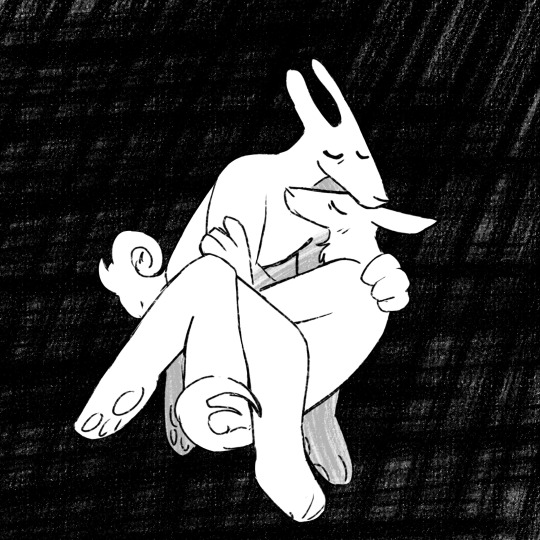
“I would sleep naked
next to you naked
I am love”
#my art#digital art#original art#doodle#artists on tumblr#art#sketch#doodlings#digital sketch#ibispaint art#car seat headrest#csh#csh fanart#csh lyrics#fanart#silly doodles#doodlysketch#song#song lyrics#song art#twin fantasy#face to face#I am love#some of the best lyrics ever
150 notes
·
View notes
Text
distance. timing. breakdown. fighting. silence. the train runs off its tracks... kiss me. try to fix it. could you just try to LISTEN. hang up. give up. for the life of us we can't get back....

#one of her best songs ever#every single line is a career highlight type of lyric#taylor swift#lyric posting
168 notes
·
View notes
Text
“For the first time since I drew breath/I’m undesirable again” holy fuck.
#i think that’s the first time that a song lyric has ever left me genuinely speechless#that song is haunting#best new one on the album in my opinion#last woman on earth#cacophony#paris paloma
95 notes
·
View notes
Text

And that’s all that should matter to you
#IGNORE FHAT THE LYRICS ARE IN THE WRONG ORDERR#west coast smoker best song ever made#pete wentz#pete#fob#fall out boy#folie a deux#my art#fob fanart#fall out boy fanart
1K notes
·
View notes
Text

why'd you wait for the summer to chew and spit me out!!!
#tiny angry mumu!!!!#lyrics from the summer by citizen. the best song ever made#amuro ray#gundam#zeta gundam#mobile suit gundam#mobile suit zeta gundam#doodle#doodles#fan art#mspaint#ms paint#uc gundam#my art#amu.jpeg
41 notes
·
View notes
Text


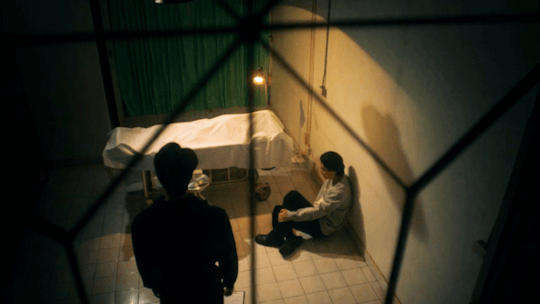




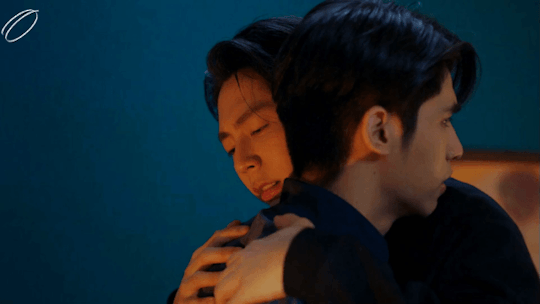
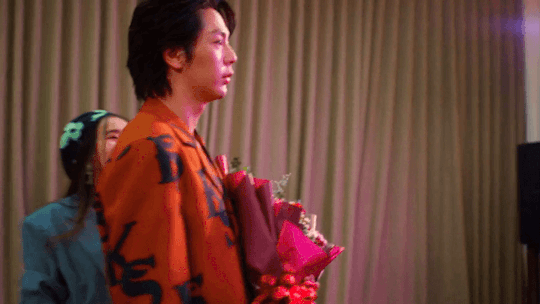



[My Stand-In 1.09] | [DPR Ian - Limbo]
don't waste your tears on somebody you can't even save throw me down to the wolves it's where i belong see you on the other side where our worlds will collide take what's yours just leave me in two pieces i left my heart down in the basement where all the ravens take their turn picking at what's left of me i took you out of my existence only to crawl back into your arms knowing how much it will take away do you think we are really dreaming? can someone tell me where i am? i'm running out of sand i took you out of my existence only to crawl back into your arms knowing it will make me go insane
#HERE YOU GO my first ever gifs with text that wasn't just subtitles aaaaaaaggggghhhh#i know it's very basic text but i don't have any fancy programs and i am doing my best#this song came on in the car driving home from work saturday and i was like OH MY GOD THIS SONG IS JOE AND MING#thank you Ian for everything that you do and every song you make and putting the wildest thoughts and feelings to music#and like please a song named Limbo it was literally meant for them and this show#i hope y'all like these and they don't suck and they're legible ;alskfdj;ajf#uhhhhh everyone go listen to dpr ian and all the other dpr boys now okay thanks#i will probably always think of them when i hear this song now kbye#my stand in#my stand-in#my stand in the series#mingjoe#joeming#up poompat#poom phuripan#dpr ian#dpr ian limbo#dream perfect regime#mia gifs my stand in things#mia gifs drama things#mia gifs things with lyrics#mia gifs things
71 notes
·
View notes
Text
Who wants HamilFalls!
[Stanley]
There's nothing like winter in the Falls
Someone in distress fights someone in their walls
There's trouble in the air you can smell it
Stanford's by himself, I'll let him tell it
[Ford]
I hadn't slept in a week
I was weak, I was awake
You've never seen a research scientist
More in need of a break
Longing for Fiddleford
Missing my bro
That's when Bill Cipher waltzed into my life
He said
[Bill]
I know you are a man of honor
I'm so sorry to bother you at home
But I don't know where to go
And I came here all alone
[Ford]
He said
[Bill]
My dimension's falling apart
Help me, work for me, worship me
I can help you save us all
Give you all the knowledge you seek
[Ford]
So I offered him a plan
I offered to save his land,
he said(You're too kind, sir)
I gave him full access inside my mind
I heeded to his needs,
he said(This one's mine, sir)
Then I said, "We can change the world"
He turned red, messed inside my head
Chased me down and said
"Stay~"
Woah-
(woah)
That's when I began to pray
Lord show me how to say no to this
#That's all I got#For now#Feel free to add#Came up with the idea from tiktok lol#Hamilton Falls au#Idk#billford#Obvs#stanley pines#Cuz he's Burr#ford pines#bill cipher#song lyrics#hamilton musical#Worst thing I could've come up with#Best crossover ever wym#Maybe I'll do other songs who knows#this was actually really fun#gravity falls#gravity falls au#implied fiddauthor#Technically
20 notes
·
View notes
Text
Screaming from the crypt (or how the past haunts the present on Midnights)
I know it's been discussed so much since Midnights came out but just.
I love how there is such a clear narrative throughout the album (and perhaps especially on the 3am/Vault tracks). About questioning and regret and choices and coming to terms with all of it. It is one long story about how we're all a mosaic of the choices we make, each one taking something from us and leaving something else in its place.
(And now a disclaimer: I'm looking at this mostly through a narrator/subject lens, and trying not to dive too deeply into real-life events or speculation except for in a general sense. For this purpose I like to look at the body of work as art, like literature, because I find it makes it easier to see the common threads in the different songs and cohesion in the narrative.)
In looking at the 3am+ tracks in particular, it's fascinating how some turns of phrases or themes repeat themselves in different songs, in different contexts. (I'm only focusing on the non-standard tracks because there are too many songs and I'd be here all day but I bet I could do a part two lol.) I know many people have pointed out the parallels throughout her discography already and I’m not saying anything groundbreaking by writing this, but I love how these parallels run through in the same album, because it makes it seem like it's one long story, or at least, one long rumination on many different stories that are coalescing into a single narrative.
Battle (let’s go)
For instance, the one that jumped out at me when I started writing this post the other week was, "Tore your banners down, took the battle underground," in The Great War and "If clarity's in death, then why won't this die? Years of tearing down our banners, you and I," in Would've, Could've Should've. It's a story about staying stuck in the same cycle of reliving trauma and coping mechanisms and bad habits over and over again and fantasizing about how taking the “antagonist” out and gaining the upper hand for good would bring closure (WCS), but the truth is that nothing ever will. All that cycle does, though, is repeat itself in other situations, and in this case pushes someone away the narrator cares for (TGW). The difference is that the imagined battle in WCS is a two-way street in her mind (that is ultimately unwinnable because it was never a fair fight), but in TGW it's one-sided -- she's the one fighting dirty, taking shots, the way she'd been doing in her imagination (or nightmares) all these years. But the person in front of her isn't fighting back the way the person in her mind in WCS would, because their intentions are honourable instead of exploitative.
And that's paralleled in another pair of lyrics from the two songs, "And maybe it's the past talking, screaming from the crypt, telling me to punish you for things you never did," (in TGW) and "The tomb won't close, I fight with you in my sleep," (in WCS). In both cases, the funeral imagery makes it seem like this past event should be dead and buried in WCS, but it keeps rising from the dead, haunting her no matter what she does and in TGW, another (or perhaps the same?) tomb that won't close keeps unleashing new ways to hurt her and in turn the new person in her life. In other words, the trauma from the past continues to bleed into the present.
(Again from a literary point of view, I'm not saying the events of the two songs are linked IRL, but they're fascinating textual parallels on the album as a string of chapters, which is why Dear Reader is so compelling, but that's a whole other essay.)
To keep the battle motif going, there’s yet another parallel, this time between TGW’s "[You were a] soldier down on that icy ground, looked up at me with honor and truth," and You’re Losing Me’s "All I did was bleed as I tried to be the bravest soldier, fighting in only your army.” In the former, the subject is laying down his armour in the war she’s projecting onto him, waving the white flag, and she realizes that she’s about to destroy something if she doesn’t put her sword down too. By the time we get to YLM, the roles are almost reversed; at the very least they’re supposed to be on the same team, but in this case she’s doing all the heavy lifting, fighting for their relationship in contrast to his apathy killing it. It’s also pretty interesting (if not outright intentional) that one of the 3am+ editions of the albums starts with The Great War, where they find themselves in conflict (even if it’s in her head) that ends in a truce, and ends with You’re Losing Me signalling the end of the relationship, evidence that the resolution in the first song wasn’t an ending but merely a ceasefire before the last battle.
Putting the rest under a cut because this is waaaaay too long now ⤵️
(There’s also another metaphor there in The Great War with its battle imagery: World War I, aka The Great War, was supposed to be the war to end all wars, because loss on its scale was never seen before and when it ended, most thought never again would the world embroil itself in such battle, the horrors and implications were so devastating. Two decades later, the world found itself in WWII, with an even larger scope and more horrific consequences, the intervening time between the two a period of festering conflicts and resentment leading to some of the worst acts the world would see. Bringing real life into it for a second, there’s something a little poetic, though sad, about The Great War the song being about a fight that could have ended the relationship that they ultimately resolved and was meant to be evidence of the strength of their love, but so too did it end up being a period of détente, the greater battle coming for them years later. But that is not the point of this post.)
If one thing had been different
Another major theme in these editions is pondering the "what ifs?" of life, but I think it takes on even more significance in the broader context of the album in the lyrics of "I'm never gonna meet what could've been, would've been, should've been you," in Bigger than the Whole Sky and the repetition of would've/could've in Would've, Could've, Should've (I would've looked away at the first glance, I would've stayed on my knees, I would've gone along with the righteous, I could've gone on as I was, would've could've should've if I'd only played it safe, etc.) In both songs, the narrator is mourning an alternate course their life could have taken* and questioning what they could have done differently, in the aftermath of trauma and loss, and the regret that comes with that loss, and with the loss of agency in the situation because ultimately it was never in their hands. In an album full of questions, wondering about the path not taken, or the forks in the road that have led to a different version of your life, it's digging deeper into the contrast of choice vs. fate, action vs. reaction, dwelling on the past vs. moving on. When you're supposed to let go of the past, what do you do when it is holding your future hostage?
(*I know there are different interpretations/speculation about BTTWS which I am not getting into on main. I'm just saying that whatever the song is about, it's grieving something that never came to be. The literal origin of the song is less important to the album than the sense of loss it portrays. Whatever the inspiration is, it's crafted to tell part of the story of Midnights of ruminating over how, to borrow from her previous work, if one thing had been different, would everything be different?)
(Also I was today years old when I realized that the words are inverted in the two songs. Apparently I've been hearing BTTWS wrong this whole time.)
There's also an interesting tangent in the role of faith in both songs: in WCS, the events of the story cause her to lose her faith (e.g. "All I used to do was pray," "you're a crisis of my faith,") and question all the things she felt had been unquestionable until that point in her life (e.g. "I could have gone along with the righteous"), whereas in BTTWS, she questions whether that very lack of faith is to blame for the loss in that song ("did some force take you because I didn't pray? [...] It's not meant to be, so I'll say words I don't believe"). It's like pinpointing the moment her life changed and upended her beliefs (WCS), but as a result then leaving her unmoored in times of crisis because ultimately there's no explanation or comfort to be taken from what she used to hold true before that (BTTWS). The words she once relied upon to guide her have long since lost their meaning, but in times of trouble it leaves her wondering if that faith she once held then lost could have prevented this pain.
(Shoutout to WCS for being Catholic guilt personified lol.)
To keep on with the vaguely faith-y notions, an obvious parallel is the line in Would’ve Could’ve Should’ve about, “I damn sure never would've danced with the devil at nineteen,” and, "When you aim at the devil, make sure you don't miss," in Dear Reader. All of WCS is about her fighting with an antagonist who haunts her, with whom she wholly regrets ever becoming involved. DR could be seen as a reflection on that fall from grace, warning the audience that if you choose to go after the person (or thing) haunting you, make sure you do so clearheaded enough to be decisive. Again, these “devils” may not be related in real life: the IRL devil in DR could be speaking about her naysayers, or Kim*ye, or Scott & Scooter B, etc., meaning not to cross your enemies until you know you can win. But taking real life out of it and looking at it textually, I am intrigued by the link between WCS and DR, so that’s what I’m going with here. And perhaps that’s even the point in a wider sense; there will be multiple “devils” in your life, or threats to your well-being. If you’re going to commit to taking them down — whether it’s an actual person, or the demons inside you that refuse to let you go — make sure you have the right ammo so that they can no longer hurt you. (Of course, one lesson from these experiences is that sometimes you can’t win, and you have to live with the fallout.)
(Sidebar: I know that “dancing with the devil” is a turn of phrase that means being led into temptation and engaging in risky behaviour, as opposed to describing the actual person. Given the religious metaphors in the song, that could very well be/is the intention, particularly when it’s preceded by, “I would have stayed on my knees” as in she would have continued to follow her faith — in whatever sense that means — had she never met this person, which could also be a more eloquent way of saying she would have continued to be live her life in a way that was righteous (even naive) and seen the world in black and white. Either way, it’s a force she wholly rejects. Like I said, multiple devils, same fight.)
Regret comes up too: in WCS, she says, "I regret you all the time," obviously directed at the person who manipulated her and led to her perceived downfall, citing him as the one impulse she wished she'd never followed, because it won't leave her no matter how hard she’s tried. In High Infidelity, she tells the person to, "put on your records and regret me," and on the surface, it’s like she’s turning the tables, painting herself as the one now causing the regret in someone else, the one inflicting the pain this time. Yet the verse preceding it and the lines following it in the chorus depict a partner who is also emotionally manipulative and vindictive like in WCS (“you said I was freeloading, I didn’t know you were keeping count,” “put on your headphones and burn my city,”). It’s not so much that she’s intentionally harming the person (the way the person in WCS does to her), but rather that the venom in the subject’s feelings towards her seeps through; she’s imagining the way he’s going to feel about her when she leaves, hating her just for by being who she is. (There could be another tangent about how in both songs she’s there to be a “token” in a game for both of the men, who play her for their own purposes.) The regret is dripping with disdain. It’s as though she’s picturing how the person is going to hate her for doing what she’s thinking of doing the way she hates the person who first hurt her.
Sadness, unsurprisingly, shows up in a few lyrics. In BTTWS, “Everything I touch becomes sick with sadness,” sets the scene of a person so overcome with grief that it permeates everything around them; they cannot see their way out of it and feel like the fog will never lift. In Hits Different, it’s, “My sadness is contagious,” the result of a breakup where the person’s grief again touches everything and everyone around them, pushing them further in their despair and loneliness. The reason behind the grief in either case may vary, but regardless of the source, the feeling is overpowering and isolating. They may be different chapters in the story, but the devastation is hauntingly familiar. (As is a recurring theme in Midnights as a whole: there are situations and feelings that present themselves at different points in her journey and colour in the lines in different ways along the road. Like revisiting an old vice and realizing the hit isn’t quite the same as it was in the past.)
Death by a thousand cuts
She also writes about wounds on this album, which isn't surprising I suppose given that the whole conceit is that these are things that have kept her up at night over the years. WCS is perhaps the driving narrative on this never ending hurt when she sings, “The wound won't close, I keep on waiting for a sign, I regret you all the time,” suggesting that no matter what she does, the pain of this experience has permeated everything she’s done afterwards. (Not unlike the overwhelming grief in BTTWS, for instance.) Elsewhere, in High Infidelity she sings, "Lock broken, slur spoken, wound open, game token," and in Hits Different, "Make it make some sense why the wound is still bleeding.” Again I'm not suggesting they're about the same events; the line in HI is about a situation where a partner crosses a boundary, hits below the belt, picks at an insecurity (or creates a new one) and treats the relationship like it's transactional, opening the floodgates in turn. In HD, the wound seems to be more self-inflicted, where she's pushed the person away. (Over a situation real or imagined she feels she needs distance from.) But again, something has picked at her like a raw nerve, and just like in the past, she's hurting, even in a different time and place and person. Almost like the wounds of the past break open over and over again to create new scars. If one were to extrapolate further, it wouldn’t be the biggest leap to wonder if the wound open in WCS, then torn apart in HI makes the one in HD hurt even more.
(I once wrote a post about how I think as time goes on, WCS is going to turn into one of those songs that will be found to drive so much of her work, because it’s just… kind of the unsaid thesis statement of so much of her songwriting.)
Another repeated theme is that of the empty home and loneliness. In High Infidelity, she sings, "At the house lonely, good money I'd pay if you just know me, seemed like the right thing at the time," painting a picture of someone who may have everything they'd want to the outside world, but in reality feels metaphorically trapped in their home (or at least alone amidst abundance), a symbol of a relationship gone sour and a failure to build connection. She just wants someone to understand her, want her for her, but as she's written earlier in the song, she's just a pawn in the game, a trophy from the hunt. Home, in this case, is lonely, isolated, an emblem of her fears. In Dear Reader, she continues this thread, then singing, "You wouldn't take my word for it if you knew who was talking, if you knew where I was walking, to a house not a home, all alone 'cause nobody's there, where I pace in my pen and my friends found friends who care, no one sees you lose when you're playing solitaire." It's the same idea, admitting to listeners that the gilded cage she lived in kept her distanced from her loved ones and real connection, keeping her struggles close to the vest but feeling desperately lonely amidst her crowning success. She's pushed people away and it may have felt like the right thing at the time, but in the end maybe felt like she was trapped. And when you push people away, eventually they take you at your word and stop pushing back; you’re a victim of your own success at isolating yourself. What starts out of self-preservation then further perpetuates the underlying problems.
(There's another interesting link about "home" also feeling unsafe with HI's "Your picket fence is sharp as knives," which further leads into the theme of marriage/domesticity feeling dangerous, which is a whole other thing I won't get into here because it's another discussion and may derail this already gargantuan word salad.)
In a slightly similar vein, we have the metaphor of bad weather for a rocky road or unstable relationship, in High Infidelity again with, "Storm coming, good husband, bad omen, dragged my feet right down the aisle" and You’re Losing Me’s "every morning I glared at you with storms in my eyes.” They aren’t speaking of the same situation or even same kind of breakdown, but it is pretty interesting how the idea of clouds/storms/floods/etc. play such a role in Taylor’s music to signal depression, apprehension, fear, uncertainty, etc. In HI, I think the “storm” coming is the looming threat of commitment to a partner who makes the narrator uneasy (if not fearful). In this case, the idea of making a life with this person is not one that incites joy or comfort, but instead makes the narrator feel that dark times are ahead if she continues down this path. Perhaps in some way, the “storms” in YLM have made good on the threat in HI in a different way; it’s a different home, a different relationship, but the clouds have settled in regardless, and some of her fears have come to fruition in ways she did not expect. The person she once trusted no longer sees her or her struggles (or worse, doesn’t care), and the resentment and pain build with each passing day.
Coming back to heartbreak, one of the obvious "full circle" moments is the beginning of a relationship in Paris, where she says that, "I'm so in love that I might stop breathing," clearly enthralled in a new love that allows her to shut the world out and grow in private, capturing the all-encompassing nature of the relationship. This infatuation has consumed her in the most wonderful way (in contrast to the sorrow of some of the previous songs), and it feels like a life-altering (or even life-sustaining?) force that is so strong she may forget what it’s like to breathe. (Metaphorically speaking, of course.) By the end of the album, though, in You're Losing Me, that heart-stopping love has become a threat: "my heart won't start anymore for you." In the former, her racing heart is full of excitement, but by the latter, her heart has given out completely under the weight of the pain she bears. (YLM is full of death/illness imagery which I already wrote about awhile ago so I won't hear, but needless to say that song deserves its own essay for so many reasons.) She's gone from the unbridled joy of the beginnings of a relationship to the unrelenting sorrow of its end, two sides of the same coin.
Love as death appears elsewhere in the music too, for instance, in High Infidelity’s, “You know there's many different ways that you can kill the one you love, the slowest way is never loving them enough" and You’re Losing Me’s “How can you say that you love someone you can't tell is dying? […] My face was gray, but you wouldn't admit that we were sick.” Though not completely analogous situations, they both tell the tale of one partner’s apathy (or at least denial) destroying the other. In the former, the partner’s actions (or inaction) are more insidious, if not sinister; in the latter, the lack of momentum (or admission of a problem) is passive. In both cases, the end result is the narrator’s demise; it’s a drawn out affair that chips away at her morale and her health and her sense of self. (Breaking my own rule about bringing in alleged actual events into the discussion, but the idea that the relationship in High Infidelity, which was obviously fraught with unease and even fear, ended in a similarly excruciatingly slow and hurtful death by a thousand cuts as the relationship in You’re Losing Me almost did at that time must have been so painful. It almost feels like YLM is wondering why what used to be a source of light in her life was mirroring a situation that caused her such pain in the past.)
From the same little breaks in your soul
I said early on that part of what is so compelling about Midnights is that it feels like an album about ruminating — on choices, on events, on people — and the two final “bonus” tracks of the album depict that as well. In Hits Different, she sings that, “they say if it’s right, you know,” an ode to the confusion of a breakup and struggling with the aftermath of calling it quits. It’s a line that has always intrigued me, because the typical use of the phrase is in the sense of, “you’ll know when you meet the one,” but here it seems to have a double meaning, a reassurance perhaps from the friends (who later on tell her that "love is a lie") that she’ll know if she’s made the right decision in calling it off, but could also be her wondering if the relationship is right, she’ll know, and want to reconcile. In the final bonus track, You’re Losing Me, she sings, “now I just sit in the dark and wonder if it’s time,” this time leaving no doubt about the dilemma she faces, though it’s no less fraught. She’s wondering, perhaps for the last time, if now is finally the moment to end the relationship for good. They say that if it’s right she’ll know, and now she’s wondering if that feeling inside her (that once told her her partner was the one, which is why it hit differently), is telling her that it’s time to go for good. Wait Alexa play “It’s Time To Go.” These are not only the things that keep her up at night, but the things that play over in her mind like a film reel in her waking hours.
Midnights as a whole is a deeply personal album, as is most of Taylor's work, but the 3am+ edition tracks seem to dig even deeper to a lot of the issues raised on the standard album. Almost like the standard tracks are the things she wonders about on sleepless nights, but the bonus tracks are the things that haunt her in the aftermath. The regret, anger, sadness, grief, relief, even joy— they’re the price she pays for the memories she keeps reliving. Midnights might be the most cohesive narrative of all her albums, and really does feel like we’re watching someone work through her journal over time, stopping short of outright naming those giant fears and intrusive thoughts (except for when she does) but making them plain as day when you connect the songs together, and perhaps never more clearly than in the expanded album. It’s incredible how the songs stand on their own to relay a specific moment in time, but that they are also self-referential to each other (whether thematically or overtly) to weave a larger web over the entire work. We’re so lucky as fans to have these stories and to keep peeling back these layers as time passes. (And my literature-analysis-loving ass loves her even more for it.)
This is obviously by no means an exhaustive list, and I know there are more parallels and probably even stronger links (particularly when you add the standard version into the mix), but these were the ones that particularly struck me and I’m just glad I’ve had a chance to sit with this and think it through. ❤️
#writing letters addressed to the fire#me thinking too hard about taylor lyrics#taylor swift#midnights#long post#lyrics analysis#song parallels#Gabby this one is for you friend <3#here goes nothing#Happy Friday or something idk!#(also i know i said there are things i wouldn’t discuss on main but my dms are open lol)#this is not as structured or well plotted out as I wanted it to be#and turned out to be more stream of consciousness than legit essay#but whatever at least i got my thoughts out there and it can release some plot of land in my brain for other stuff to think over lol#If anyone ever reads this thank you! And I’m sorry?#The best compliment i ever got in school#was when we were doing an analysis of a poem in English lit in college#And i brought something up casually#and my prof went ‘I’ve been teaching this class for eight years and that’s the first time anyone’s ever brought it up like that’#’and that just blew my mind’#and i was like ‘who me?’#so that’s all you need to know about me lol#Midnights: The Great War#Bigger than the whole sky#bttws#Midnights: Paris#Midnights: high infidelity#would’ve could’ve should’ve#Midnights: dear reader#midnights: bigger than the whole sky
124 notes
·
View notes
Text
i dont think its a crime to make music (or art in general) that might be considered bad but if im going to have to hear about taylor swift all the time because people keep hyping her up as the most talented lyricist of our generation when the lyrics in question are Like This i AM going to be a little hater. because what the hell is this

#sorry i had to look up the stuff in that post to make sure it was real. Its real .#every time i see someone say taylor swift is the best songwriter ever or something i feel like im being lied to because what .#like i get that its a matter of opinion just because something doesnt appeal to me doesnt mean it cant appeal to others#but . bad lyrics aside . even the tswift songs i can admit are decentish dont feel like anything special i dont Get it .#maybe thats why shes so popular actually. she makes it generic and boring on purpose to appeal to as many people as possible#okay bye now i have to find shelter before the swiftie army comes after me
63 notes
·
View notes
Text
I’M GONNA RIP YOU UP I’M GONNA BREAK YOU DOWN‼️
I’M GONNA TAKE YOU TO A CHOP SHOP DOWNTOWN‼️
YOU KNOW THAT YOU’LL BE DREADIN THIS ANDROID ARMAGEDDON‼️
I THINK YOU BETTER CHECK YOUR FLUIDS CAUSE I KNOW YOU’RE SWEATIN‼️
#THIS IS A ROBOT RIOT‼️#screaming the lyrics everytime this song comes on#literally one of the best pnf songs to ever exist#the best love händel song too#phineas and ferb#phineas and ferb across the second dimension#love händel#robot riot#pnf
65 notes
·
View notes
Text
ahhhh sex = money is just 🔥🔥🔥🔥😍😍💸👌 i'm lowkey a little surprised by how much i like it 😂
#käärijä#it's so upbeat and energetic but also aggressive#and the lyrics are great#fun but also when you think about them deeper they're actually saying something very real#about how fickle fame is and what you have to do and how much you have to give to stay relevant#but also. the cougar line & “i already have an aunt” HHAHAHA i love it so funny 😂😂😂😂#gonna have to stop listening to it on repeat must wait till it's officially out before streaming it nonstop 😔#too bad i can't stay up for the ig live that's wayyy to late for me#but wehee tomorrow's my birthday when the song's officially out and this is defo the best b-day present ever 😎
20 notes
·
View notes
Text
dor 'girlfriend or girl thats a friend?' lily
#dorlily#fuck jkr#fatimah yaps 🎀#marauders era#marauders#lily evans#dorcas meadowes#dorcas x lily#lily x dorcas#clario#flaming hot cheetos#PLEASE LISTEN TO THIS SONG#BEST SONG EVER#lyrics#songs#music#spotify#harry potter marauders#marauders fandom#the marauders#dead gay wizards from the 70s#the maruaders#dead gay witches#sapphic marauders#marauders girls#lilly evans#lily jane evans#lily potter#lily evans potter
21 notes
·
View notes
Text
#properly stumped by my own poll#some are better with more lyrical context but tumblr has a character limit in polls#Sweet Dreams is better as a one liner#Separate and Ever Deadly’s darlin’ is also the best part of the song#The Meeting Place is heart wrenching#Mirrorball has my heart with full context#Has to be Mirrorball I think#alex turner#tlsp#arctic monkeys#lyrics#my polls#darling#darlin’#tuesday musings
35 notes
·
View notes